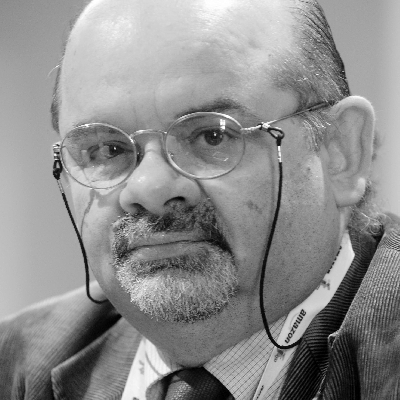Re Soil Foundation kicks off, its objectives include transforming into a valuable asset the reintroduction of carbon into the soil. It is all about paying attention to the soil. A hardly renewable resource that has been under attack for several years, both from building and fossil agriculture, and which is essential for the functioning of ecosystems. Thinking about defending this resource starts from determining the value of activities such as protection and restoring which must be fully included in economic chains.
An undervalued resource
Soil. Our last frontier. Paraphrasing Star Trek, we could define soil as one of the last resources, if not even THE last, to be analyzed from an environmental perspective. And yet, this resource is fundamental despite its importance for our biosphere being undervalued.
Soil is a scarce and hardly-renewable resource providing vital functions. Suffice it to think that it produces what we call public goods essential for our ecosystem. Clean water, nutrient cycling, carbon storage, a share of oxygen production and food production: all these resources depend on soil and its wellbeing. Soil is a fragile ecosystem with a renewability rate spanning centuries. On average, to form a 5-cm layer of new and vital soil it takes 1,000 years and this asset is under attack at all latitudes.
At a global level, 30% of soil is degraded and each year we lose 1,000 km2 of precious and productive soil due to concreting, an irreversible process. Just to give you some examples close to home: in Europe soil risking degradation amounts to 30% in Rumania, 50% in Portugal, 59% in Italy and 74% in Spain. As a matter of fact, the Sahara, spurred by climate change, is crossing the Mediterranean. And we will not be able to oppose it as we are doing with immigrants.
But desertification is not the only (negative) side of the coin in the relationship between climate and soil. Soil is also an extraordinary actor in carbon sequestration. Indeed, fertile soil of the entire planet would be able to absorb all CO2 emissions from Europe each year. Soil degradation then influences its capacity to mitigate emissions, setting off a domino effect, without taking into consideration that its deterioration triggers the release of carbon fixed for centuries. Practically, if not managed correctly, it becomes a fossil reserve releasing carbon while it could store it.

Unknown Soil
The systematic study of soil, with its connected political fallouts, still has a long way to go. To make up for it, on 27th January 2020, with an appointment in Rome, Re Soil Foundation was created, a brainchild of Catia Bastioli – Novamont CEO and a member of EU Mission Board on Soil –, Guido Saracco – Turin Polytechnic dean – and Francesco Ubertini – Bologna University Alma Mater Studiorum dean.
“We must start from the soil, we cannot go on extracting without regenerating it,” explains Catia Bastioli. “In any activity we carry out we must first take care of preserving the functions of services from the soil. This is crucial and I think this must be our top priority and it must come before any other interest. It is also a question of individual and collective responsibility that we have towards ecosystems that are being degraded at an impressive speed. A speed measured in years, not in decades. It is crucial to reintroduce organic matter into the soil and it is a priority over anything else.”
Difficult Road
The use of compost and high-quality organic matter in agriculture is one of the main solutions to tackle both regeneration and conservation of soil fertility and decarbonization. Numbers though suggest that this is an uphill road. Out of 96 million tonnes of organic waste produced each year in Europe, 64 are not recovered. At the global level, 20% of wastewater is not treated while phosphates deriving from animal slurries and manure can be recycled producing agricultural fertilizers or secondary raw materials for the industrial sector.
The problem, to fine tune this systemic approach, is the variety of chains and their lack of symbiosis. And even on this Catia Bastioli has a lot to say. “First of all, agriculture must think in a new way: we are starting to see, a positive sign, that the agricultural world is moving in this direction. That is, agriculture is no longer the extraction of products from earth but becomes its guardian. Besides, we must decrease anthropic pressure on the soil by changing our eating habits, by modifying in the meantime our value chain by reversing it.
On the concept of the value and its “extraction”, we must take an important step. On one hand, who takes care of soil resources must indeed be paid, while the value of sustainable behaviours must move towards the begging of the chain. Reintroducing organic matter into the soil must be valued like bioenergies or with a comparable methodology in order not to send “up in smoke” organic carbon but storing it in soil, thus reaching both a positive effect on fertility and the acceleration of decarbonization.
A Value to Be Defined
This is a central approach that could act as a watershed within the scenario of the environmental movement that, by large and despite a few cases, avoids pondering on the value of ecosystems and on how they can produce value sustainably, rightly including them rightly in production chains. Moreover, Bastioli deems necessary for making progress. Novamont CEO stressed the fact that we need to regenerate marginal lands to change the peripheral destiny by making them development centres. Regeneration is also an economic opportunity in which we can learn how we can produce more value than quantity, thus making products really circular by redesigning them from the very beginning and giving recycling a different meaning from today’s. “Today, we recycle products which are discarded,” concludes Bastioli. “As a matter of fact, we need to rethink the whole cycle so that the system becomes totally sustainable. It is a complex argument to put together. Politics must allow experimenting, with local projects, testing on the field new products linked to the development of the bioeconomy, monitoring them in a transparent way and trying to accelerate and involve the community.”
Here, Re Soil Foundation’s role is to cover through a systemic approach, lacking in this field, these topics leading to the development of these practices, promoting land regeneration projects, supporting organic matter in soil with the same dignity compared to bioenergy. The latter is an extremely ambitious goal, but extremely important and that could allow the ecological movement to make a huge quality leap. To be able to trace a net value link between a KWh fed to the grid and a kilogram of carbon in the soil would undermine the cultural – and economic – barrier preventing valuing CO2 not only as damage but also as a resource. A value representing a positive asset. An approach that, once demonstrated, could convince more than a few economic and political decision makers to take a U turn. In a circular way.



